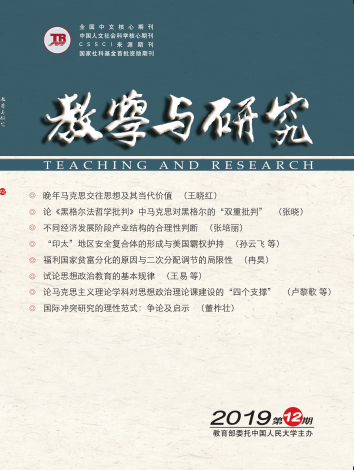The law of ideological and political education is the essential connection and inevitable trend in ideological and political education, and it is a concentrated
reflection of the essence of ideological and political education. The revelation of the basic laws of ideological and political education should be based on the three core categories of “thought”, “politics” and “education”, and find out three basic contradictions of ideological and political education: macro level, “political education” and “educational politics”; the middle level, the ideological contradiction of the subject and object of ideological and political education; the micro level, the contradiction between the ideological and political education object and the ideological freedom. From this, the three basic laws of ideological and political education are inferred: the unified law of scientific values at the macro level, that is, from the perspective of attributes, ideological and political education is based on scientific premise and value is the pursuit, and the two are integrated; The twoway interaction law of the subject and object at the level, that is, the subject and object of ideological and political education takes course as the content and confusion as the focus, realizes the pursuit of Tao in the interaction; the microlevel internalization of social consciousness,that is, the individual should transform the social consciousness into the ideological concept and externalize the ideological concept into the behavior habit, so as to realize the transformation from the free state of thought to the selfstate of thought.



